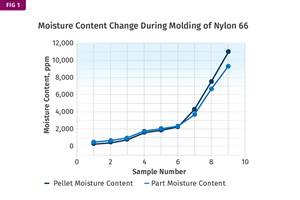IBM Tackles Chemical Recycling of Plastics From Post-Consumer PC (Think CDs) to a Thermoset
Jeannette Garcia, polymer chemist at IBM Research, details her research into chemical recycling of plastics for monomer recovery.
Jeannette Garcia is a polymer chemist at IBM Research and her inquiries are focused on the rational design of new polymers and materials through sustainable methods, targeting recyclable materials with mechanical and thermal properties in combinations not previously accessible. She wrote a blog in 2017 detailing some of her research in this area. I checked in with Garcia to see what she’s working on now:
Q: What are some of your key findings with plastics recycling?
A: At IBM, we've worked on chemical recycling of plastics for a number of different applications and polymer types. I talk in my blog about the work that Jim Hedrick in collaboration with Bob Waymouth (Stanford U) and their teams did before my arrival at IBM on the depolymerization of PET with organic catalysts. I found this work to be inspiring, and I began to think of polymers (plastics) as large molecules that could be reacted in the correct environment. Thus, we began to look at other types of materials that could be chemically degraded selectively back to monomer for re-polymerization. This carried a unique set of challenges: solubility of materials was one of them that needed to be addressed.
In the case of chemical recycling, we found that certain chemical environments were effective to react with the surface of polymers and continue reacting with the plastic from the surface on the outside and inwards. An example was reacting e-waste (CDs, which are primarily polycarbonate) as a masked/latent monomer source for the production of polysulfone. We used potassium carbonate as a catalyst in this case that acted to break down the CD material into pieces which could react with another monomer and polymerize.
An example of chemical recycling of an intractable material was illustrated by chemical recycling of polyhexahydrotriazines (PHTs), a polymer that we developed in our lab. In the case of recycling, we also applied a dilute sulfuric acid solution to digest a thermoset in which the crosslinks in the material could be hydrolyzed back to the monomer starting material.
Q: Regarding the PC recycling project, is this discovery something that you can see being used on a wider scale? What are some of the challenges in working with PC for recycling?
A: Yes. In my opinion, this could be a scaled process. The key idea here would be to used ground-up CDs, DVDs, or other polycarbonate waste (we've talked about iPhone shells, football helmets, airplane windshields, etc.) as a drop-in replacement for BPA. Then polymers that use BPA as a monomer, such as polyimides and polysulfone could be synthesized directly from the waste input. The reaction on small scale was robust (the metal foil layer in the CD didn't impact the reaction, for example) and clean. The polysulfone was isolated just by precipitating into water or methanol and filtering.
Q: At the Global Plastics Summit in 2017 , you mentioned that you’re working on designing catalysts that can break down polyolefin and materials such as foams and composites, can you give any more detail about this?
A: We've looked a bit into recycling of composites with PHTs that we developed in our labs and we are inspired by the early results. We have observed reversion of the polymer matrix resin on small scale in our labs. Other academic groups have used PHTs as the matrix resin for composites and showed that it was completely recyclable. They also characterized the surface of the filler to show that the filler itself could also be recycled after this process, which is very exciting!
Related Content
What's the Allowable Moisture Content in Nylons? It Depends: Part 2
Operating within guidelines from material suppliers can produce levels of polymer degradation. Get around it with better control over either the temperature of the melt or the barrel residence time.
Read MoreNPE2024 Materials: Spotlight on Sustainability with Performance
Across the show, sustainability ruled in new materials technology, from polyolefins and engineering resins to biobased materials.
Read MoreThe Fantasy and Reality of Raw Material Shelf Life: Part 1
Is a two-year-old hygroscopic resin kept in its original packaging still useful? Let’s try to answer that question and clear up some misconceptions.
Read MoreGeneral Polymers Thermoplastics to Further Expand Distribution Business
NPE2024: Following the company’s recent partnership buyout, new North American geographic territories are in its sight.
Read MoreRead Next
Lead the Conversation, Change the Conversation
Coverage of single-use plastics can be both misleading and demoralizing. Here are 10 tips for changing the perception of the plastics industry at your company and in your community.
Read MorePeople 4.0 – How to Get Buy-In from Your Staff for Industry 4.0 Systems
Implementing a production monitoring system as the foundation of a ‘smart factory’ is about integrating people with new technology as much as it is about integrating machines and computers. Here are tips from a company that has gone through the process.
Read More
























